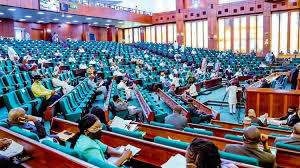A development economist and energy expert, Dr. Smart Idowu, has advised state and federal governments to seek alternative ways of ensuring food supply to avoid the looking disaster occasioned by the on-going Russia- Ukraine war.
Dr. Idowu, who lamented Nigeria’s overdependence on foreign nations for food, said it was time the government of Nigeria sought alternatives to food for the citizens to avoid the impending hunger and starvation.
He gave the admonition while speaking with our correspondent on the effects of invasion of Ukraine by Russia on Nigeria and other dependent nations.
He said, “As with every mishap that takes Nigeria unawares, the war has revealed Nigeria’s dependence on the outside world for even subsistence. The impact of the war will see a steady rise in the price of staple foods such as bread and noodles. Agricultural products are likely to be affected since the demand for fertiliser will increase worldwide.
“It is a fact that Russia is regarded as Nigeria’s sixth largest trade partner in terms of imports. Apart from oil and gas and agricultural products, Nigeria imports potash, a primary ingredient for fertilisers, from Russia. So far, the disruption in the global shipments occasioned by the imposed sanctions against Russia as well as its aftermath has led to a surging increase in diesel and supply of petroleum to Nigeria.
Noting the strategic importance of the two warring nations to Nigeria, he said both countries are the largest suppliers of Durum wheat to Nigeria.
“From Ukraine, Nigeria imports iron ore for the production of steel and primary manufacturing hardware. Both Russia and Ukraine are the largest exporters of durum wheat to Nigeria. Durum wheat is used in the production of flour for bread and noodles.
“The reality is that Russia and Ukraine are number one and number five, respectively, in wheat production, and if you take that volume, which is almost one-third of global production, there would be an immediate impact on prices.
“The impact is not just on wheat alone; Ukraine is one of the largest producers of maize, which will also have a significant impact on maize, which is an alternative to wheat. You will start looking at cross-border trafficking of maize; more farmers will look into taking maize out of the country.”
Cassava growers too
In a related development, the Cassava Growers Association of Nigeria (NCGA) has advised Nigeria to look towards alternatives that could be used for flour which is used for the production of bread and other pastries rather than focusing on wheat.
The Association’s national public relations officer (PRO), Dr. Austin Maduka, gave the advice in a telephone interview with our reporter, however, warned that those he referred to as “wheat mafias” would not allow the government to look towards “these alternatives because they are benefiting from it.”
He said, “Wheat is a foreign crop that is largely grown in America and other western nations. Here in Nigeria, it can be grown in places like Kano, Jigawa, Zamfara and the rest of them. As a matter of fact, wheat production in Nigeria cannot meet our needs but we have alternatives. We can use cassava, plantain, potato, etc., for flour. We must not depend on wheat.
“There many things that can be used for flour. You must not have wheat to do bread. There are so many things that can be used for flour. Plantain can be used for flour, potato; cocoyam can be used for flour. There are so many things that the government can do, but it’s just that political will is not there. So, we must not have wheat to make bread and other pastries. It’s just that the wheat mafias will never allow this because they make a lot of money from there.”
He also urged the government to encourage dry season farmers “so that the country can grow food all-year round.”
“There will definitely be scarcity because we don’t have food reserves. There is nothing the government can do immediately. We cannot buy from any country now because they are also in need of food in their country.
“What they can do in the future is to increase allocation to farmers especially in the North where they have large expanses of land for irrigation and dry season farming so that we can grow food all year round. You know we still depend on rain fed agriculture in Nigeria but in other countries you grow food all year round.
“You know the population is increasing everyday but the land for agriculture is not increasing. So, as a matter of national importance and to end food insecurity, the government should clear and dedicate more land for agriculture.
“If you go to the North you see so much abandoned agricultural land. Even in the South, if you go to Edo state, for example, there are lands that have not been put to use for the past 25 years. Thousands of hectares are lying fallow; nobody is making use of them. If you go to Ondo, if you go to Imo, the government is not using some of the lands reserved by Sam Mbakwe and the rest of them for farming. The smallholder farmers cannot feed the nation. Many of them have been dismissed because of insecurity across the country.”




